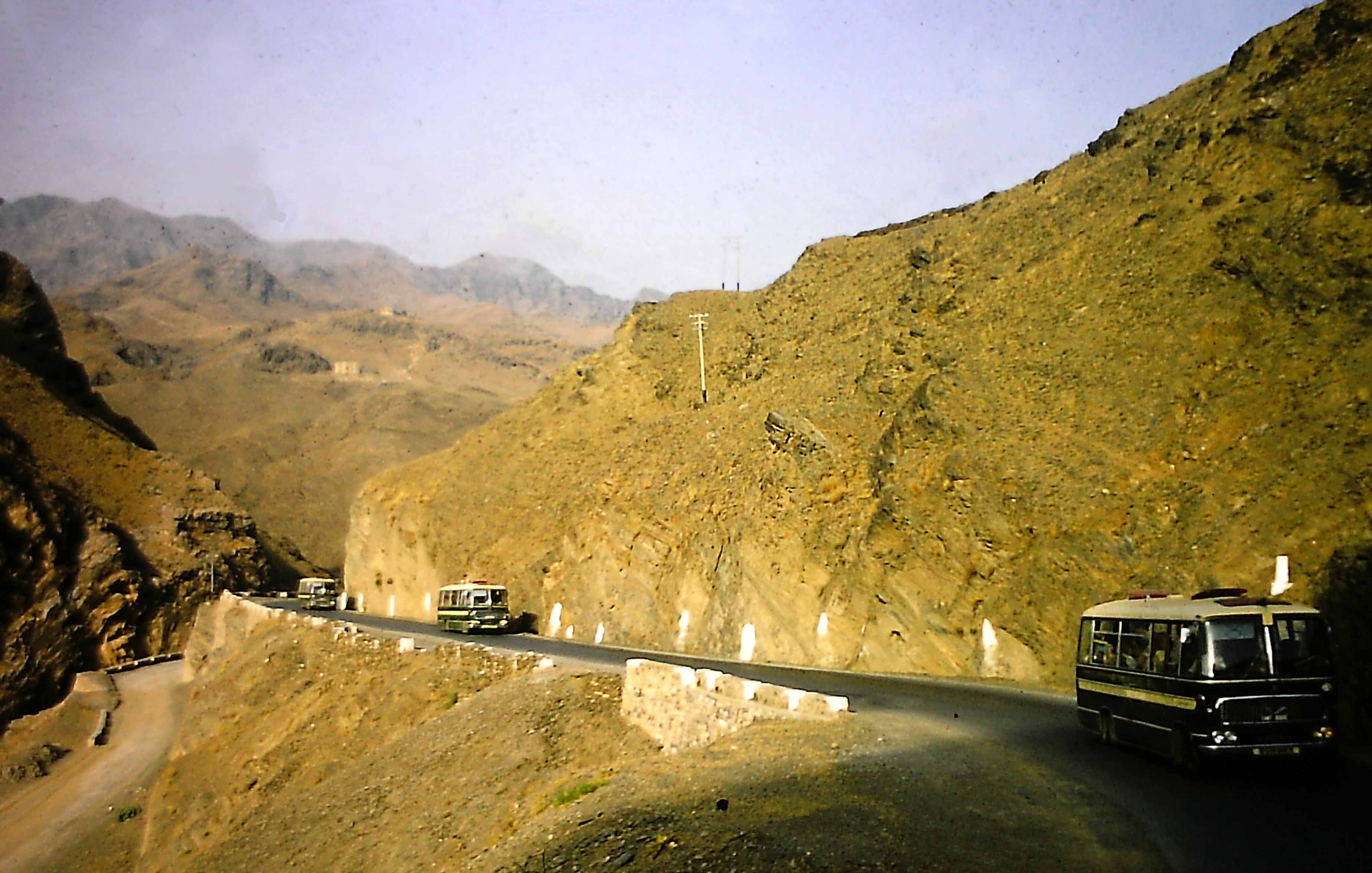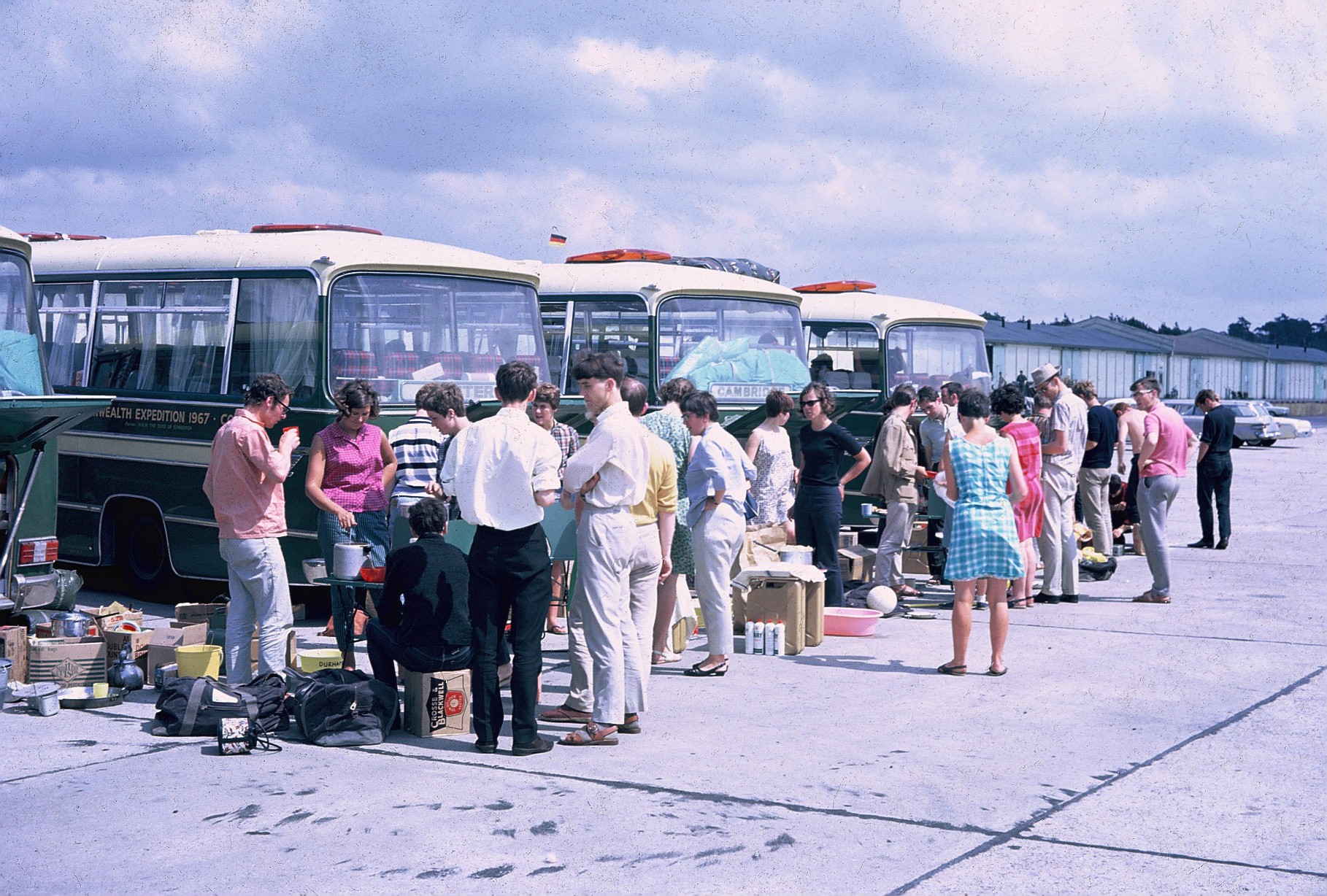COMEX - the journey of a lifetime
COMEX 2 (the Commonwealth Overland Expedition to Pakistan and India) was an expedition that saw university students across the country jump on buses and drive across Europe and the Middle East and beyond, for a two and a half month overland expedition to India, and back. There were several COMEX expeditions over the years, with the first ever one setting off in 1965.
The expeditions, 14 in all, were run by retired Gurka Regiment Lieutenant Colonel Lionel Gregory, OBE, commonly known as ‘Greg’ and Anne, who was later to become his wife. Greg set up COMEX, because he wanted young people from the sixties to experience the world and interact with their peers in other countries through cultural and intellectual activities as well as common adventure. He referred to the participants as his ‘army for peace’.
Each coach on a COMEX expedition was allocated to a British university. The total travelling distance for the Exeter coach (including back to the UK via very much the same route) was approximately 15,000 miles. This is a route that seems astonishing and would be almost impossible, today, travelling through countries such as Iran and Afghanistan, as well as the former Yugoslavia.
Exeter Alumni Norman Leigh (Latin, 1969) and David Hayward (Chemistry, 1968) took part in COMEX 2 in 1967, while Barbara Schudel née Simpson (French and German, 1968) joined Comex 3 in 1969. The three were part of a recent reunion, held at Reed Hall, on the University campus.
Fifty years on from COMEX 2 we talked to them about their journey of a lifetime ...
How was COMEX funding?
Norman:
“The City Council gave a grant. The crests of the City Council and the University were attached by transfers to the sides of our coach. The City Bus Depot also provided training for our drivers, and the Mayor gave a reception and arranged press coverage which helped with other fundraising. City and County companies gave help in cash or kind.
“The most memorable was the donation by Ambrosia Creamed Rice (back then they had a factory in North Devon), of several cases of their tinned product! As well as taking part in fund-raising we had each to provide £50. Doesn’t sound much today, but in 1967 this would have paid for the best part of a term’s full board in a Hall of Residence!”
Who else took part and how long were you away?
David:
“The expedition as a whole involved 310 members in all, including some from 15 Commonwealth and 4 non-Commonwealth countries.
“There were coaches from Cambridge, Cardiff, Durham, Edinburgh, Exeter, Glasgow, Keele, Liverpool, Oxford, Sheffield and Sussex. The Exeter contingent of COMEX 2 in 1967, which represented (broadly) ‘South West England’, was made up of 28 young people, mostly Exeter students but also a couple from Bristol and Reading, some local trainee teachers and a few people from industry.
“Although each brand new Bedford-Duple coach was designed as a 30-seater, we removed one of the double back seats in order to create space for hanging jackets, etc.
“Prior to the expedition during a briefing week at Sussex University, as well as en-route during the expedition, we camped using canvas awnings thrown over our coach and groundsheets underneath and then slept in army-style sleeping bags, with men on one side and women on the other.
“From Dover, we spent four weeks reaching Pakistan, five days in Pakistan, almost three weeks in India and a return journey of 3½ weeks = 11 weeks in total.
“After a send-off from Exeter by the then Vice-Chancellor and the Mayor of Exeter, and picking up additional contingent members en-route via South London and North Kent, all COMEX coaches boarded Dover ferries on 19 July and arrived back on UK soil on 4 October, having missed just a few days of the new Exeter University (autumn) term.
Barbara:
“COMEX 3 was composed of 20 Contingents, each of 25 members, based on the Universities of Birmingham, Bristol, Cambridge, Cardiff, Durham, Edinburgh, Exeter, Glasgow, Keele, Kent, Lancaster, Leicester, Liverpool, London, Manchester, Newcastle, Oxford, St Andrews, Sussex and Yorkshire.
“I do not know how participants were selected. I suppose I was accepted on the University of Exeter Coach, because I had been a student there? I, myself, like to think that it was because I was mature (I turned 24 during the expedition!) and I spoke three languages! Indeed, at one point, during the Expedition, I was called upon to speak German...
“I knew no-one on the expedition before we set off.”
What are your fondest memories from the adventure?
Barbara:
“My most moving memory of the trip was the laying of a wreath at Raj Gjat (Gandhi’s Tomb) by Colonel Lionel Gregory. My most exciting memory was a snake hung around my neck!
The best part of each day was every night! We went to bed late, and woke up early (3am), no matter where... Of course, we managed to sleep during the day, counting not sheep, but kilometres.
“Finally, there were also all the ‘stamps’ in my passport. I had to get a new one in Istanbul, there was too little space for them all!”
Norman:
“The early morning when the exhaustion of the previous day had been overcome, and we saw for the first time in daylight, the places we had arrived at late in the evening in pitch dark; entering a new country and observing the changes in people and their environment, way of life etc.
“Our first opportunity to display the English folk dancing which we had been learning since Easter. Crossing the Khyber Pass between Afghanistan and Pakistan. Final arrival at the imposing central building University of New Delhi (equivalent to drawing up outside Northcote House with the V-C waiting on the steps!) and the feeling that we’d really made it. Hospitable reception many times of our somewhat amateur cultural offerings.”
David:
“There were many:
“The indescribable beauty of Afghanistan with its combination of dry heat but often cool air – a country of emptiness, towering golden mountains in the distance and the occasional silhouetted camel on the horizon.
“Crossing between Afghanistan and Pakistan, imagining the massacre of British troops and families in the 1840s after the retreat from Kabul - one could almost sense the lurking snipers behind the crags of the towering hills. The Khyber Pass itself was not as spectacular as some of us had imagined, its historical significance being confused perhaps with its scenic promise (‘It’s just like Ilfracombe’ stated one of our female contingent members…!!) but the Sarobi Pass (or Khyber Gorge) shortly before the Khyber Pass was the most spectacular rocky scenery we passed through.
“Once in India, following welcoming garlands and ‘coke’ at the border and our reception and initial stay in Delhi in hostels (the women in a deserted Day Centre and the men in Hindu College), visits to Jaipur (the Paris of India) and the close by Amber Palace, the original site of the old city of Jaipur.
“The Taj Mahal, an ivory-white marble mausoleum on the south bank of the Yamuna River in Agra which defies description, arguably the 8th wonder of the world.
“Performing our English Folk Dancing at the Gaiety Theatre in Simla in the Himalayan foothills where relics of the White Raj lay everywhere. Simla was a magical place with lush vegetation, clouds on eye level and monkeys running across rooftops.”
Were there any negatives?
Norman:
“Certain days, particularly the long stretches on unmade roads in NE Turkey and Iran, when the heat and dust were inescapable and the journey took longer than scheduled, not least because of lengthy frontier formalities at pre-computer-age crossings.”
“I should also mention at this point a fatal accident which happened on the return journey less than four days from home. A faulty mobile crane swerved across the road and crashed into the Durham University coach on the highway near Zagreb (now capital of Croatia). 14 people were killed and the remainder injured and shocked.
"We all assumed that after the accident with its loss of life and high-profile trial in 1967, there would be no more Expeditions, but in fact the project returned in greater strength (20 coaches and 500 people) to form COMEX 3 in 1969. An Exeter coach took part once again and particularly a fully subscribed Durham coach, strongly supported by the parents of the students lost in 1967.”
David:
“Many aspects of the expedition were physically tough, particularly on long stretches of unmade-up corrugated roads in north-east Turkey and Iran with temperatures up to 120oF (almost 49oC) and much dust, travelling in coaches without air conditioning.
“We also experienced some scary moments. During a night-time driving session along the Asian Highway in Afghanistan between Kandahar and Kabul (for the most part, good tarmac road built up off the desert plain), our coach struck a boulder and careered off the road into sand. No one was hurt, even the coach only suffered a slight scratch; so we found our way along a ‘diversion’ and regained the road, having radioed a warning to the Sheffield and Durham coaches behind us. Further investigation revealed that a bridge had collapsed and the only warning were a few rocks placed across the road. We co-piled more rocks on the road to warn other traffic. The three coaches resumed their journey.
“Following this experience, we gave up driving our coach at night!”
What made you take part in such a daunting and exciting adventure?
David:
“I have always enjoyed travelling and seeing more of the world which, fortunately, I have been able to do throughout my career as an environmental scientist and process design engineer.
“The previous summer before COMEX 2 (1966, the end of my first year at Exeter), I had gone on a British United North America Club (BUNAC) trip to the USA. After hearing that England had won the football world cup while in New York, I initially ran a pretzel stand in the foyer of Woolworth’s in the heart of Philadelphia in order to earn some money. I then purchased a US$99 Greyhound bus ticket to allow me to travel all over the USA for up to a month. That gave me the travel bug.”
Barbara:
“I have always been a traveller: my Dad was in the British Forces, which involved changing homes every year or so, throughout my childhood. As a schoolgirl, also a Ranger, I had camped and hitch hiked, cycled and walked (partly for the Duke of Edinburgh’s Award).
“Exeter University was the longest I had ever spent in any one place - and even then, during the 4 year course, I spent a semester in Germany, and a year in France. After my language degree in 1968, I decided to teach in Austria for a year - towards the end of that academic year, I heard of COMEX: what better way to 'see the world' than a 3-month expedition across half of it?
It was a case of ‘now, or never’! After COMEX, came marriage and a career. In short, Comex was my last fling!”
Norman:
“I have always had the urge to see as much of the world as possible. On graduation, I spent my working life with an international organisation, and after retirement we moved to my wife’s native Germany and taken every chance to see new parts of the world. Before coming up to Exeter, I had travelled by rail and sea to take part in an archaeological expedition in the Middle East (a ‘gap year’, although the term and concept had not yet (1964) been invented!). COMEX represented a chance to travel further and see beyond and behind the tourist highlights.”
Final thoughts…
Barbara:
“Looking back, at the time we were simply thankful to be back, safe and sound! Now, much later in life, I cannot, but agree with Greg, that COMEX was, indeed, ‘The Journey of a Lifetime’.
“Would I do it again? Yes, of course, I would…. on condition I were 20, again!”

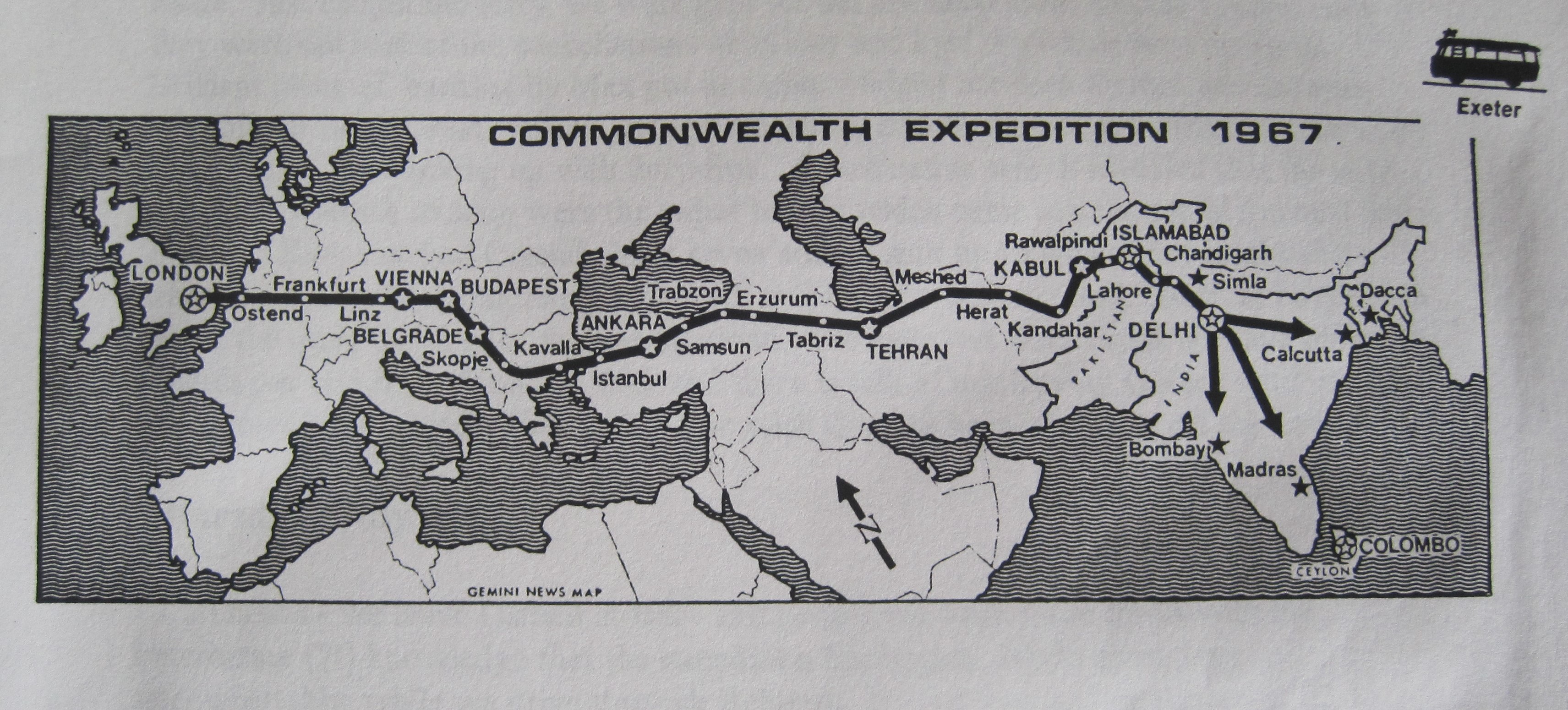
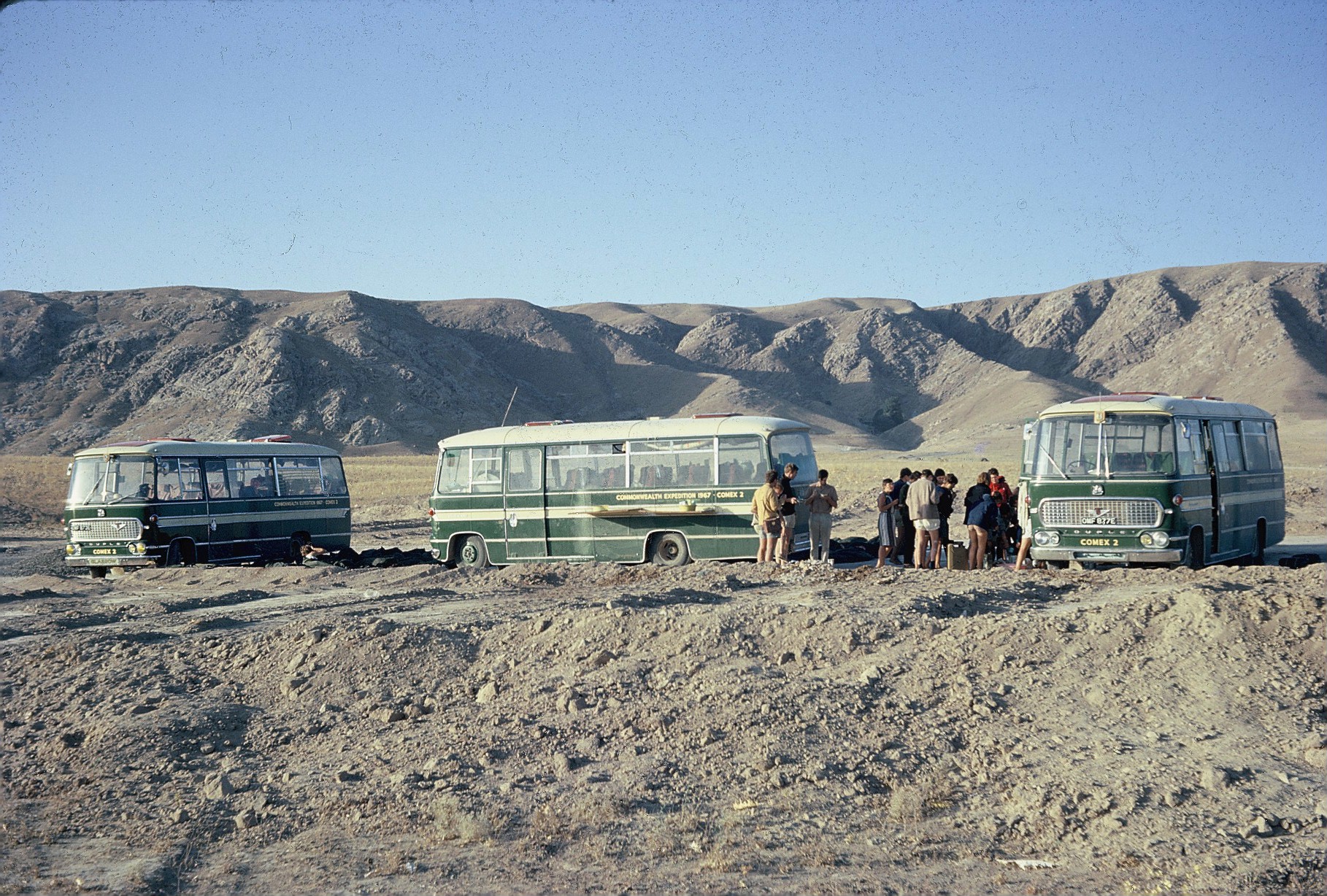
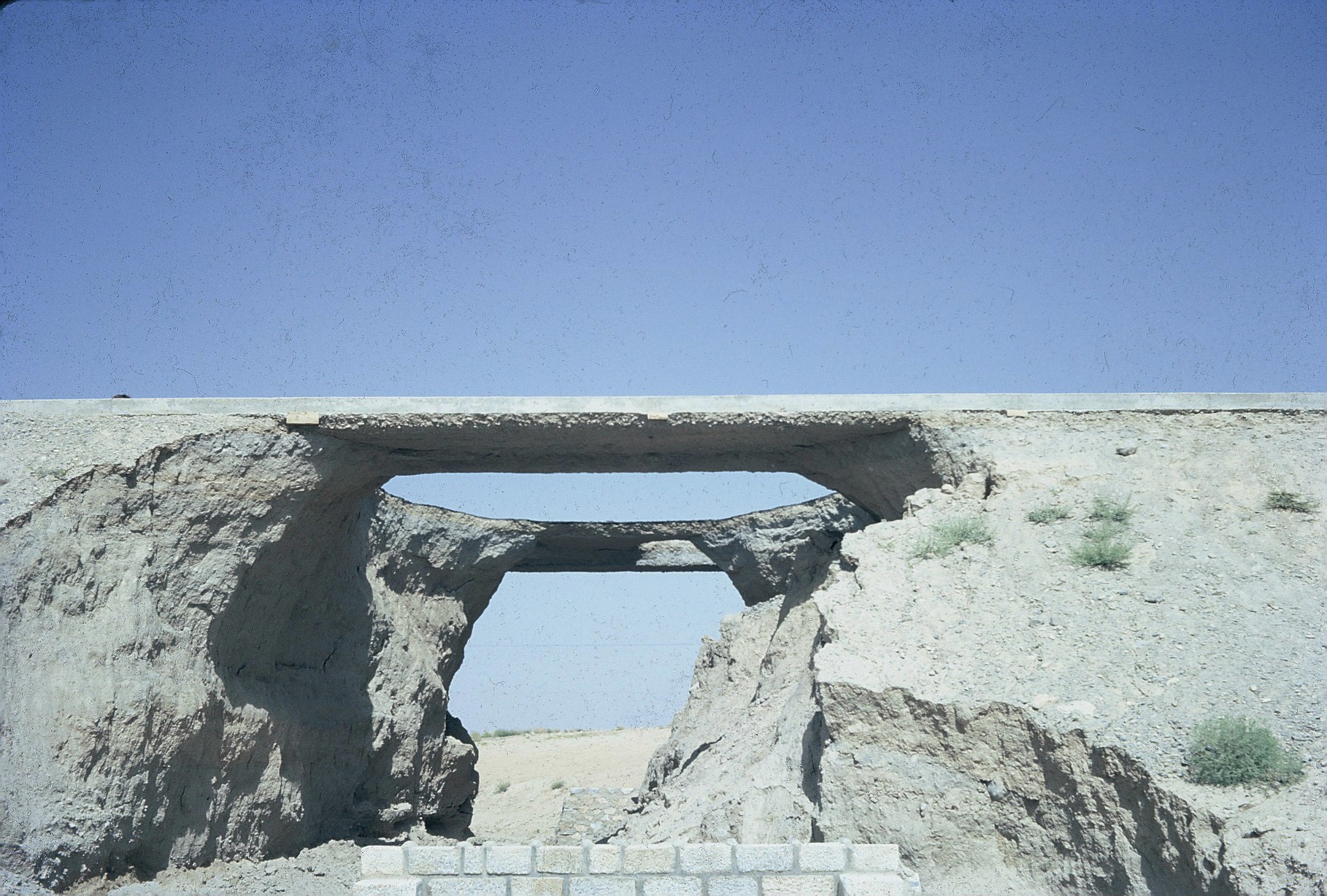
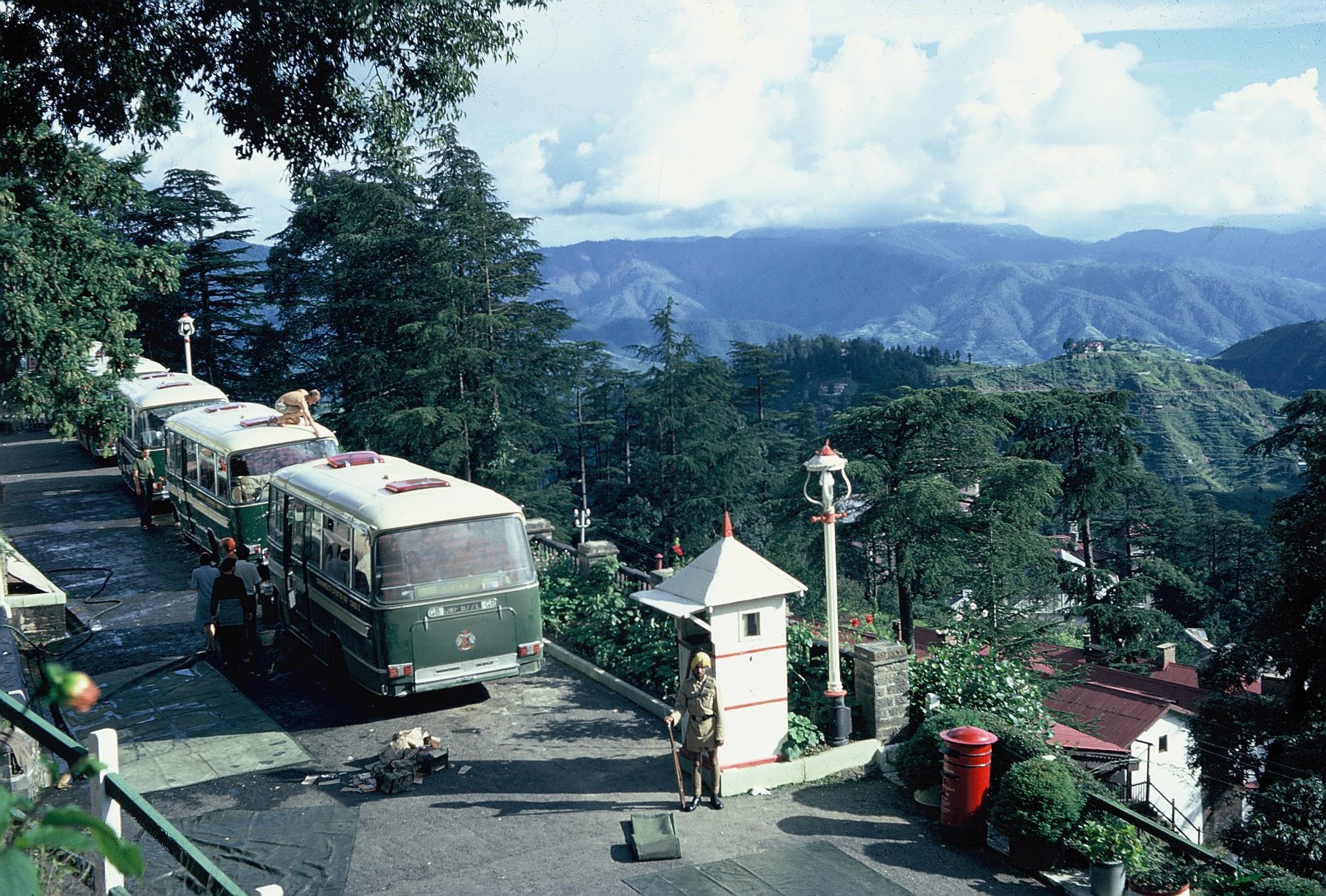
.JPG)
